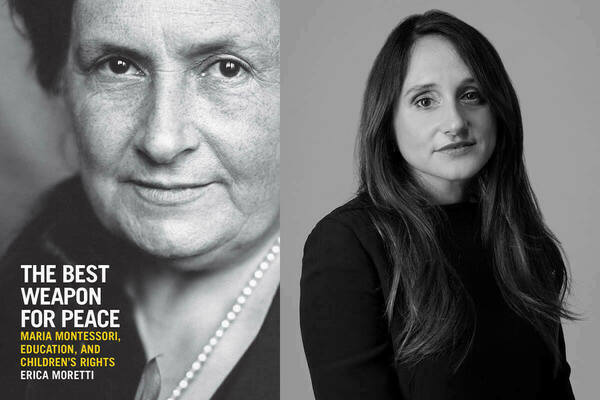Nanovic Institute awards 2024 Laura Shannon Prize to Rory Finnin for book on Crimean cultural history, ‘poetics of solidarity’
The Nanovic Institute for European Studies at the University of Notre Dame has awarded the 2024 Laura Shannon Prize in Contemporary European Studies to Rory Finnin, professor of Ukrainian studies at the University of Cambridge, for his book “Blood of Others: Stalin’s Crimean Atrocity and the Poetics of Solidarity,” published by University of Toronto Press.
The $10,000 Laura Shannon Prize, one of the preeminent prizes for European studies, is awarded each year to the best book that transcends a focus on any one country, state or people to stimulate new ways of thinking about contemporary Europe as a whole. This year’s cycle of the award considered books in the humanities published in 2021 and 2022.
In its statement, the final jury praised Finnin’s work as a major contribution toward understanding the history and mechanisms of imperialism and resistance in the Black Sea region.
“Rory Finnin’s extraordinary study forges breakthrough integrations between Slavic and Middle Eastern studies to open up and adroitly explore a largely understudied ‘contact zone’ of imperial politics central to the ongoing reshaping of European conflict today: Stalin’s 1944 forced deportation of Crimean Tatars, a small Sunni Muslim nation, from its ancestral homeland,” they stated.
“Approaching Black Sea imperial politics in ways that draw upon and extend more familiar studies of cultural strife throughout the Mediterranean Rim, Finnin’s deeply researched and eloquently written study tracks the historical record of Black Sea contact zone experience among Russian, Ukrainian, Turkish and Crimean Tatar cultures from the eighteenth century up to the 1944 atrocity — which cost the lives of great numbers of Crimean Tatars, mostly women, children and the elderly — and its aftermath in more recent revisions of Soviet history.”
The jury lauded Finnin’s impressive range of linguistic skills that enable him to examine the subtleties of original poetry and prose writings from each of these cultures that “resist the tyrannies of imperial domination and inspire sympathy and understanding for ethnic ‘Others.’”
The jury also noted that Finnin “demonstrates the catalytic power of a ‘poetics of solidarity’ to enact social reform and justice. ‘Reading,’ as Finnin concisely puts it, ‘stops bleeding.’”
“The relevance of this book for the current war in Ukraine, as well as ethnic conflict zones throughout Slavic Europe and the Middle East, makes it essential reading for anyone engaged with the history, past and present, of resistance to imperial domination within and throughout the borders of Europe,” the jury stated.

The final jury also awarded a Laura Shannon Prize Silver Medal, which carries a monetary prize, to Katerina Clark, the B. E. Bensinger Professor of Comparative Literature and Slavic Languages and Literatures at Yale University, for her work “Eurasia without Borders: The Dream of a Leftist Literary Commons,” published by Harvard University Press.

The jury also awarded an honorable mention to Erica Moretti, assistant professor of Italian at the Fashion Institute of Technology-SUNY, for her book, “The Best Weapon for Peace: Maria Montessori, Education, and Children’s Rights,” published by University of Wisconsin Press.
The 2024 prize jury was composed of an accomplished group of scholars from the humanities at both American and European universities: Eliot Borenstein, professor of Russian and Slavic studies at New York University; Nicola Gess, professor of German literature at the University of Basel; Gregory Kucich, professor of English at the University of Notre Dame; Heather Hyde Minor, professor of art history at the University of Notre Dame; and Susan Stewart, the Avalon Foundation University Professor in the Humanities, Emerita, at Princeton University.
Now in its 15th year, the Laura Shannon Prize is made possible through a generous endowment from Laura Shannon (1939-2021) and her husband, Michael, class of ’58. Laura Shannon became a member of the Nanovic Institute’s advisory board in 2003, where she served skillfully for many years. As well as her work in social services and family court mediation, she was a regular visitor to Europe, particularly to France where she honed her language skills and explored libraries and cultural centers. Claire Shannon Kelly and Katie Shannon carry on their parents’ legacy as members of the institute’s advisory board.
The Laura Shannon Prize is now accepting nominations for its 2025 prize in history and social sciences. Books published in 2022 or 2023 are eligible, and nominations are due March 1.
The Nanovic Institute, as part of the Keough School of Global Affairs, seeks to enrich the intellectual culture of Notre Dame by creating an integrated, interdisciplinary home for students, faculty and visiting scholars to explore the evolving ideas, cultures, traditions, beliefs, moral challenges and institutions that shape Europe. The Laura Shannon Prize serves an integral role in this mission by connecting the most groundbreaking scholarship in European studies to the Notre Dame community.
For additional information about the Nanovic Institute and the Laura Shannon Prize, visit nanovic.nd.edu/prize.
Originally published by at nanovic.nd.edu on Jan. 30.
Latest International
- Statement from University President Rev. Robert A. Dowd, C.S.C., on the anniversary of the atomic bombing of HiroshimaToday, on the anniversary of the bombing of Hiroshima, Father Dowd offered remarks at the Elisabeth University of Music as a guest of its president, Yuji Kawano, and Bishop Alexis Mitsuru Shirahama of Hiroshima. Father Dowd focused on the role that universities can play in addressing the current nuclear predicament and the wider challenges of peace in today’s world.
- Vatican honors Martin and Carmel Naughton with papal awardThe late Pope Francis, in one of his last acts, conferred the honour of the Order of Saint Gregory the Great upon Carmel and Martin Naughton, Trustee Emeritus of the University of Notre Dame. The papal honor is in recognition of the Naughtons’ outstanding philanthropy in the areas of education and the arts, particularly in the provision of philanthropic support and scholarships to Catholic education at the University of Notre Dame and Kylemore Abbey, and in their transformative contributions to higher education in Ireland.
- Prioritizing prenatal care may decrease low birth weight outcomes in The Gambia, Notre Dame research findsA new study co-authored by University of Notre Dame researchers highlights the importance of prenatal care for improving the health of mothers and newborns, providing evidence that can inform policy.
- Navigating the waters of peace: Researchers address challenges, opportunities in implementation of Colombia's Peace AgreementNearly half of the commitments outlined in Colombia's historic peace accord face significant challenges and may not happen in time unless policymakers make several key interventions, warns a new report from Notre Dame's Peace Accords Matrix. The report offers a blueprint to salvage an accord that has lagged behind its implementation deadlines, putting its legacy at risk. It highlights timely fixes that can strengthen the agreement.
- Partial peace deals may facilitate comprehensive accords, offering roadmap for policymakers, practitionersPartial peace agreements — deals that address targeted issues on the way to larger comprehensive accords — could provide a blueprint for peacebuilding policymakers and practitioners, according to new University of Notre Dame research.
- CANCELED: University to host Cardinal Pedro Barreto of Peru and Cardinal Peter Turkson of Ghana as part of Notre Dame ForumAs part of the 2024-25 Notre Dame Forum, Cardinal Pedro Ricardo Barreto Jimeno, S.J., of Peru and Cardinal Peter Kodwo Appiah Turkson of Ghana will visit the University of Notre Dame to participate in a conversation with President Rev. Robert A. Dowd, C.S.C., at 11:30 a.m. April 25 in the Smith Ballroom of the Morris Inn. The conversation is open to the public and will also be livestreamed for both Spanish-speaking and English-speaking audiences.













